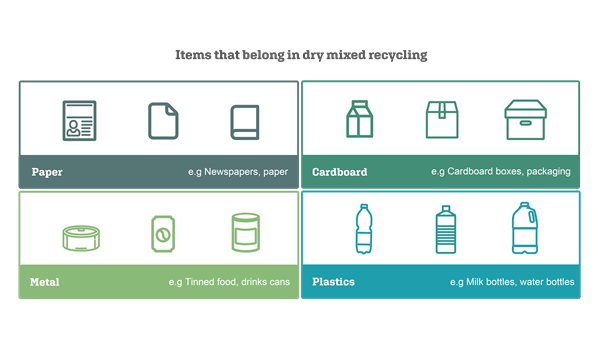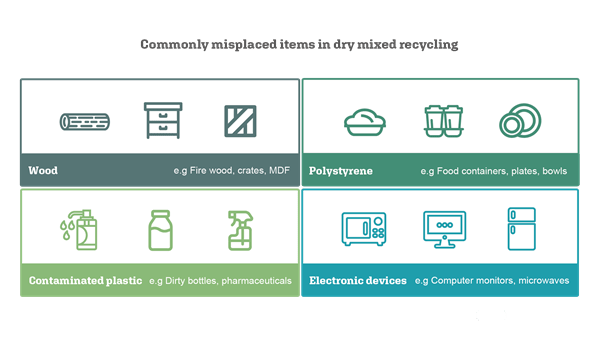Five Ways to Improve Business Recycling
Our research shows that many SMEs want to start recycling but are not clear where to begin. With businesses being asked to do more with less, it’s understandable that waste management can slip down the to-do list. Here’s some simple changes everyone can try.
In a recent survey we asked our customers how they feel about sustainability and recycling. We discovered that more than half of UK SMEs think sustainability is very important to their business, however less than half of customers choose recycling services as part of their waste management.There were many different reasons given for not recycling with the top three being: ‘it’s too expensive’, ‘no room for additional bins’, and ‘I don’t know where to start’. We shared these reasons with Biffa experts who spend their day visiting companies auditing their waste management. They came back with 5 easy steps to start recycling.
1. Start with one material and build from there
Recycling doesn’t have to be an all or nothing enterprise, you can start with one material to test and learn how you get on. If there is a particular recyclable material you find filling up your general waste bin, then that’s a good place to start. This can reduce bin size in the early stages, as you assess the benefits.You might not need a giant mixed recycling bin to get started. Get in touch with a waste expert, let us know the amount and type of materials you’re dealing with, we can advise on the right solution. It’s important to remember, even if you have just one of our accepted recyclable materials, it can still go in our dry mixed recycling bins. Here’s examples of materials that belong:

2. Find space to recycle inside the building
Waste is usually associated with the back of a building where collections are made. Let’s be honest, most people don’t want to spend lots of time out back: the weather is bad, the back door swings shut, the front of the business is unattended - all reasons why colleagues will want to get back inside as soon as possible.Try bringing parts of the process inside, like sorting and storage. If you’re using smaller bins for some or all of your recycling, bring them inside or closer to the back door. This increases engagement, saves space out back, and it can also help getting the right materials in the right bin. Here’s some examples of materials commonly misplaced in dry mixed recycling bins:

3. Make it simple for people to recycle at a glance
Time is a premium to any small business; you want to be spending your time doing the things that provide a direct return. It’s fair to say that waste management is not seen as big money spinner for most smaller organisations. However, getting the wrong materials in the wrong bin can create all sorts of logistical and financial headaches.There are things you can do to make it easy for colleagues and customers to engage in recycling, like bin positioning and clear signage. Try putting your general waste and recycling bins next to one another with unobstructed access. People are less likely to walk to another location just to recycle, so anything you can do to make the process automatic is helpful. Introduce clear signage around the bins, including symbols, so anyone can recognise at a glance.
4. Separate recycling to cut costs
Recycling is too expensive! This is perhaps the most common myth and most cited reason by SMEs for not starting to recycle. The reality is that you can actually reduce costs by introducing recycling streams into your collections. Here’s how.
Many waste management companies price their services by weight. If you are disposing of all your materials in general waste bins, separating out recyclable materials will reduce the weight of your collections. Depending on materials and volumes, this can potentially reduce costs. Sometimes, it can even reduce the size of bins, helping with space.
5. Book a free waste audit to get you started
The first step is to understand the waste your business creates and identify what is currently recycled. Once you have identified what can be recycled, the next step is look at how. This is a good point to involve the experts by booking a waste audit. We visit your sites to assess your requirements and identify opportunities to save space, time, and resource by managing your waste more sustainably.
If you are one of the many businesses out there looking to make a change, we can help. Get insight from a waste expert by booking an audit by calling 03301 734 964.
